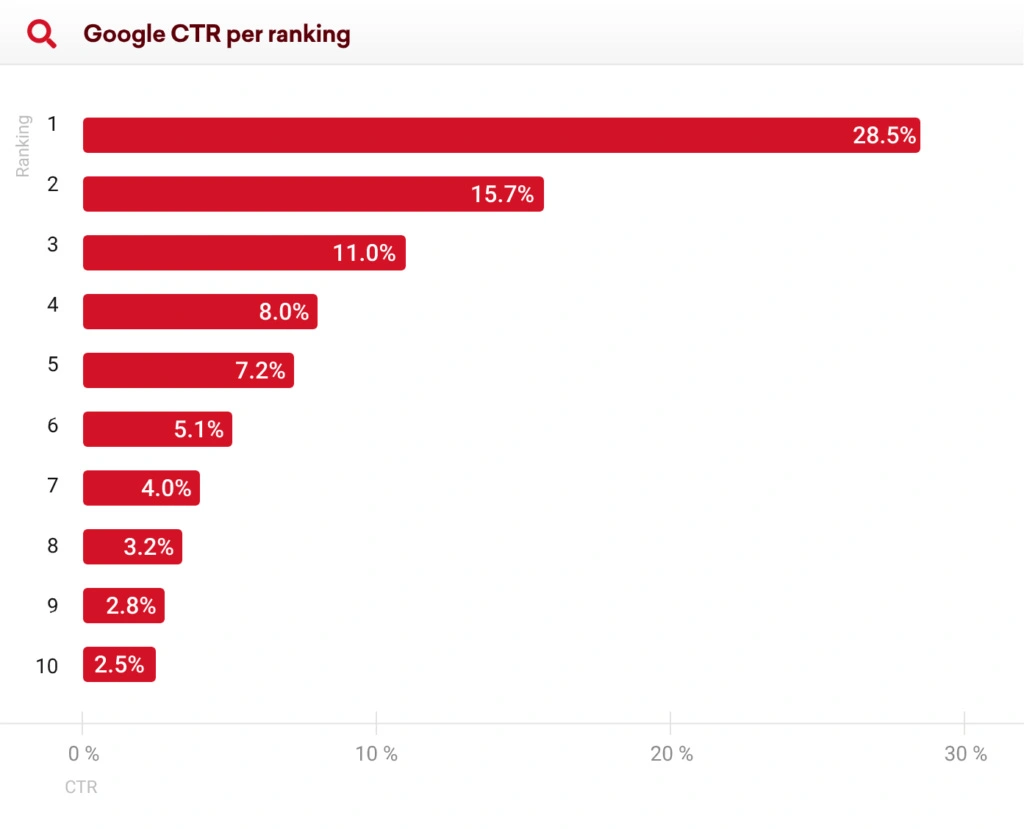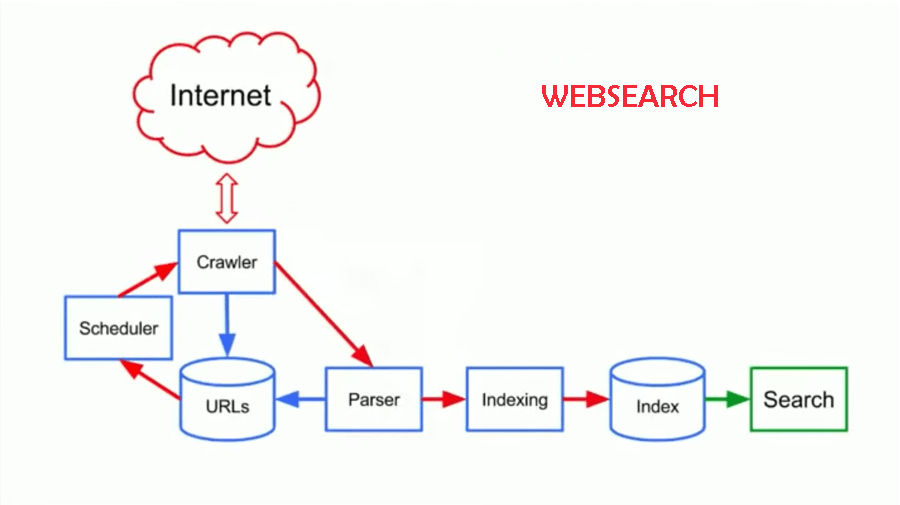In this guide, we will explain the basics of how search engines work and what is the logic behind crawling and indexing in Google’s search engine algorithm. Moreover, having a clear understanding of how your search query is processed by the search engine will give you a key to improve the rank of your website easily. Before turning to the technical details, let us first understand the basics of search engines.
With the amount of data being added onto the world wide web, how does Google search out the most relevant answer to our search query from those billions of pages talking about the same topic? What algorithm does Google’s engine follow to come out with such accurate results in a fraction of a second? Let’s debug this mystery!
It’s so evident how we depend on search engines for almost everything we do in our lives. When we type a query and click ‘Search’, that’s when the search engine comes into action.
What are Search Engines? Why are they important?
A search engine is a tool that searches for web pages on the internet according to the user’s search query. It looks for the search results in its own database and then ranks them with the help of its unique search engine algorithms.
A search engine consists of the two main parts:
- Search Index: An online library/database that contains all the information from all the web pages.
- Search Algorithm: A computer program that matches the query from the search index, to display the most relevant search results.
The reason why we should care about how a search engine works is that understanding the search engine’s algorithm will help in improving the rank of our web content. The idea is simple,
THE GOLDEN RULE: If you rank better for a particular search query —> You will get more clicks → and More traffic to your web pages.
According to a new study published by Sistrix, 25% of the users click the first organic result on the search result page with a CTR (Click Through Rate) of 28.5%. After analyzing billions of search results, the study also revealed that the average click-through rates fell sharply after the first position.

So, to drive more relevant traffic to your webpage, it is crucial to rank better. And before we discuss the ranking algorithms, let’s drill in deeper to understand how Google prepares its search index?
How do Search engines work: Crawling & Indexing

The scheduler crawls the URLs and these crawled pages go to the parser. The parser extracts the important information and indexes it. The parsed links then go to the scheduler, where they are prioritized after recursive crawling. Then Google search engine algorithms rank these pages by relevance.
While a user types a search query in the search box, there is a lot of work going on the backside. Following are the three main processes that ensure that you get precise and quality results as you press “SEARCH”:
CRAWLING:
The first step is to go through and identify all the web pages that exist on the web. This process is called Crawling. When any new web page is created on the web, Google constantly crawls through those pages and adds them to the list of known pages. Some pages are known to Google because they were crawled before and the others are known because Google follows a link to these pages from its already known pages. If you want Google to know your web pages, then you must submit a sitemap (an organized list of pages) for Google to crawl.
As soon as Google receives a page URL, it visits and crawls the page to understand the content of that page. It analyzes both the text and non-text (image or video) content, as well as the layout to determine at what rank can this webpage be shown in the search results. It is equally important to remember that Google does not crawl pages in the order they are discovered, instead, it queues the URLs for crawling depending on whether the URL of the webpage is new or changes and what is the PageRank of the URL.
Following is the list of actions you must take to improve your site crawling:
- Make sure that all the web pages of your website look correct. Google looks through all the elements on the web page and understands them. If you have many pages uploaded all at once, then do not forget to use a sitemap, that makes crawling convenient for the search engine.
If you have uploaded only a single webpage, then you have to submit a single URL, also make it your homepage. To ensure that Google crawls through the entire website, the home page must contain a good site navigation system that links to the important sections of your website. This way, Google can easily reach all your webpages by following a path of links initiating from the home page.
- You must also get your page linked by another site that is already crawled by Google. Check the Google Webmaster Guidelines to know what type of links will not be followed by Google.
NOTE: Google does not charge any fee to crawl a site, nor does it accept any payment to make a site rank higher.
- You can use a Robots.txt file that specifies which pages of the website must not be crawled by Google, for eg: Admin Panel page, the contact information page, etc.
- You can also use an XML sitemap, to enlist all the important webpages of your website that prioritizes these pages for the crawler.
INDEXING:
What is the point of crawling through the entire page, if Google forgets to keep it organized onto the stack, which it refers to while matching the results for the searched query? Therefore, after Google discovers a page, the next action is to understand the information that the page contains. Google analyzes the webpage content inclusive of all the text, images and video files embedded into it. This process is Indexing, wherein google prepares its database across a chain of computers.
Search engine do not store all the information of the webpage in their index, it only keeps:
- Title and description of the page
- Associated keywords
- Inbound and outbound links
- The date of creation/updation of the page
3 tips to improve the chances of your page indexing:
- Keep the page titles short, meaningful and keyword optimized.
- Use page headings that talk about the subject.
- Use more text than any other media in the content. If you use images and videos, do not forget to add alt text with an appropriate name for the same.
To check if your webpage is indexed by Google or not, follow the given steps:
- Open Google.
- Use the site operator followed by the name of your domain. For example: site: opositive.com. This will show how many pages of your website are indexed by Google.
RANKING:
After discovering, crawling and indexing, now Google has to rank your web page in the search results, depending on various factors. Whenever a user types a query, Google scans through its indexed pages to find the most relevant answer to the search. To show high quality results, Google takes a lot of factors into consideration. Let us understand this with an example:
If a user searches for “Buy pink shoes for men”, then the search results will programmatically display all the different sellers that sell pink shoes for men, nearby the user’s location as well as online.
How does the search engine algorithm rank web pages?
Initially, Google had a simplified query matching mechanism, wherein the title of the webpage was matched with the user’s query and the results were displayed. But with the exponential surge in data, Google currently uses more than 200 factors to decide which websites must be shown on the top of the search results. Let us understand some of the dominating factors that google search engine takes into account before deciding the rank of the webpage:
Website Security
Google does not choose websites that are not secure. Your website must be SSL enabled and must have an HTTPs link that ensures that the website is safe for surfing. HTTPs websites will always rank higher than a website that is not secured.
Domain Authority
The authority of the domain is determined by the following factors:
- DOMAIN AGE: The older the domain is, the higher are its chances of ranking high in the search results. It is estimated that the Top10 ranking pages were at least 2 years old. The website pages ranking organically at position #1 are almost 3 years old (on average).
- STATUS: Your domain must be free of Google penalties. If you have purchased an already registered domain, then the first thing you must check is that the domain has no penalties.
- DOMAIN REPUTATION: This is an indicator of what incoming links your website has, also what people review about your brand. A domain with a good reputation will get better ranking in the search results.
- DOMAIN AUTHORITY: The websites that hold high rank on the first page of Google have higher domain authority. To know the authority of your domain, there are a number of analyzer companies (moz.com, semrush.com and ahrefs.com) that can help you calculate the authority of the domain.
Speed of the webpage (Mobile and Desktop)
If your website takes a lot of time to load, then you must not overlook the red flag here. Google has an obsession with making user experience faster and smoother. Statistics state that more than 53% of the websites are left by the visitors if its loading time is longer than 3-5 seconds.
Adopt the following 5 tips to upkeep the speed of your website:
- Use a caching plugin.
- Use the upgraded technology.
- Optimize the content and use compressed media.
- Use a CDN service (Content delivery network).
People nowadays show an increased dependency on their advanced smart phones for surfing the web. This draws attention towards increasing the mobile friendliness of the website as well. Your website must load equally fast when accessed through a mobile screen.
Content and On-page optimization
To keep a check on the quality of content on your website, ensure the following 3-Us:
Uniqueness– To avoid duplicacy of the content. If you republish content that already exists on the web then you will lose Google Trust, making it difficult to rank.
Usefulness– The content your website displays must be trustworthy and reliable. It is imperative to have a definitive About-Us page to develop a sense of authority on the content. Showcase all the awards and links from the trusted websites. Have privacy and refund policies, if your website is selling products.
User experience– If the smart system spots a pattern where people previously came to your website and went back to search results, it recognizes the behavior. This indicates that they were not satisfied with what they saw, hence that affects the rank.
Quality Backlinks
Websites that have backlinks coming from other reputed websites are considered useful and get ranked higher in the search results. Google carefully scrutinizes the reputation of the website from where the backlink is initiated, to persist links as the crucial ranking factor.
CONCLUSION:
Understanding the crux of search engine algorithms and how search engine optimization is done, you need to first understand the concepts of indexing, crawling and ranking. Search engines are simple search algorithms that have evolved to complex computer programs that perform decision making. They discover the content and index it with logic to generate results for the utmost satisfaction of the user.
Your first step should be to ensure that the crawlers discover and index your web pages without any issues. And this will let you rank better and grow your visibility better for the targeted audience.











